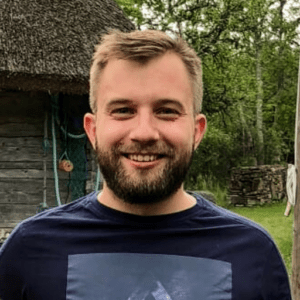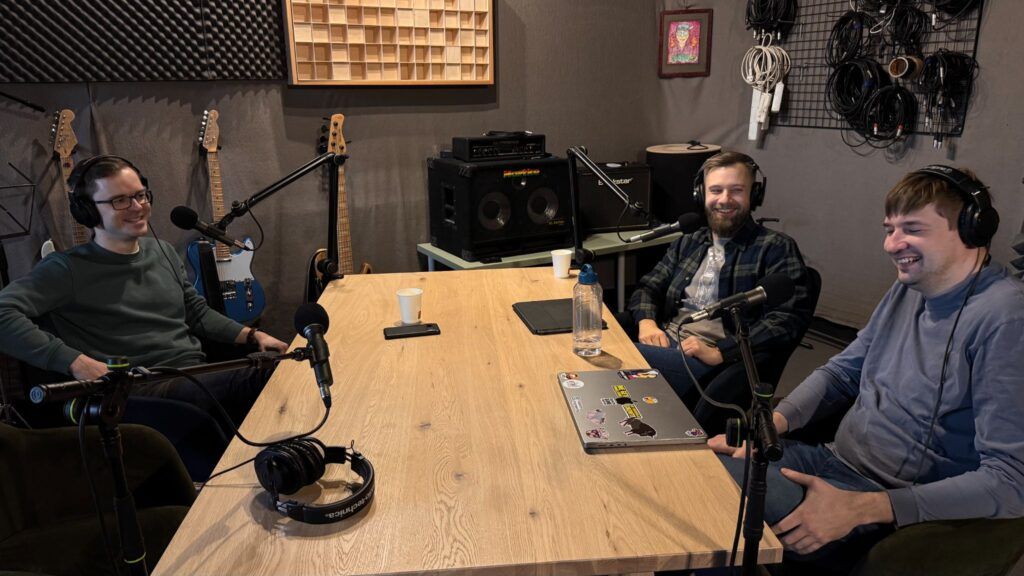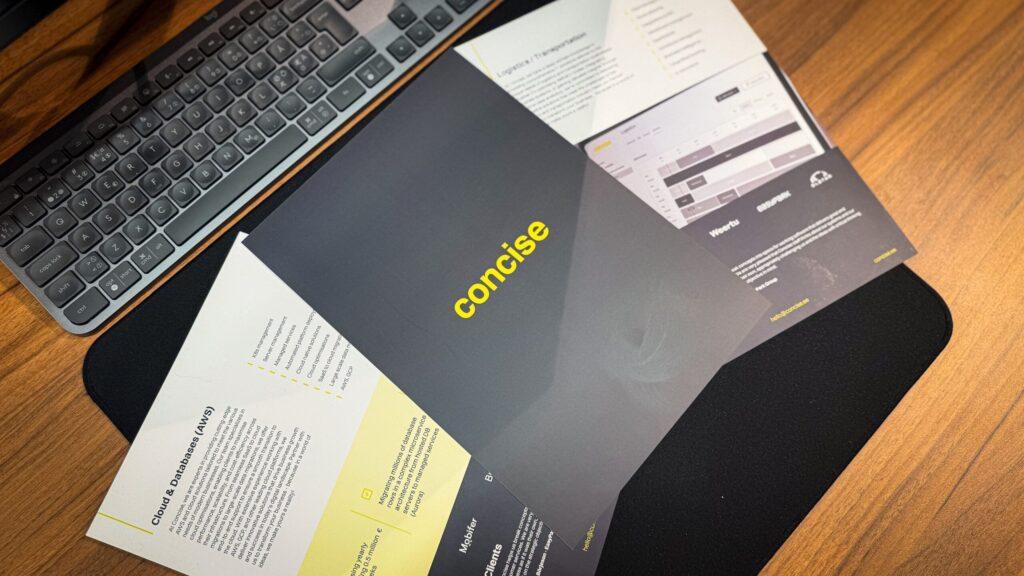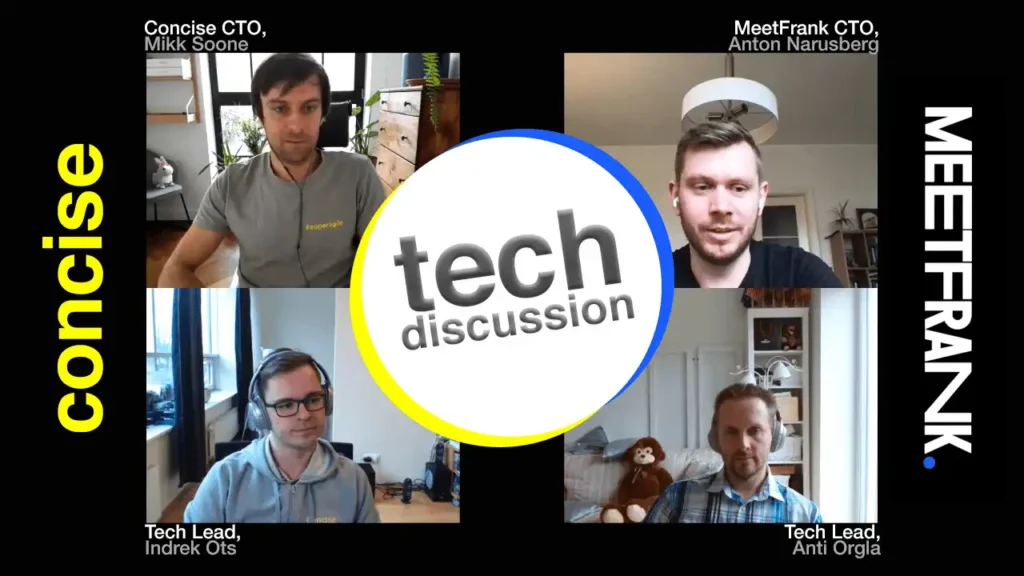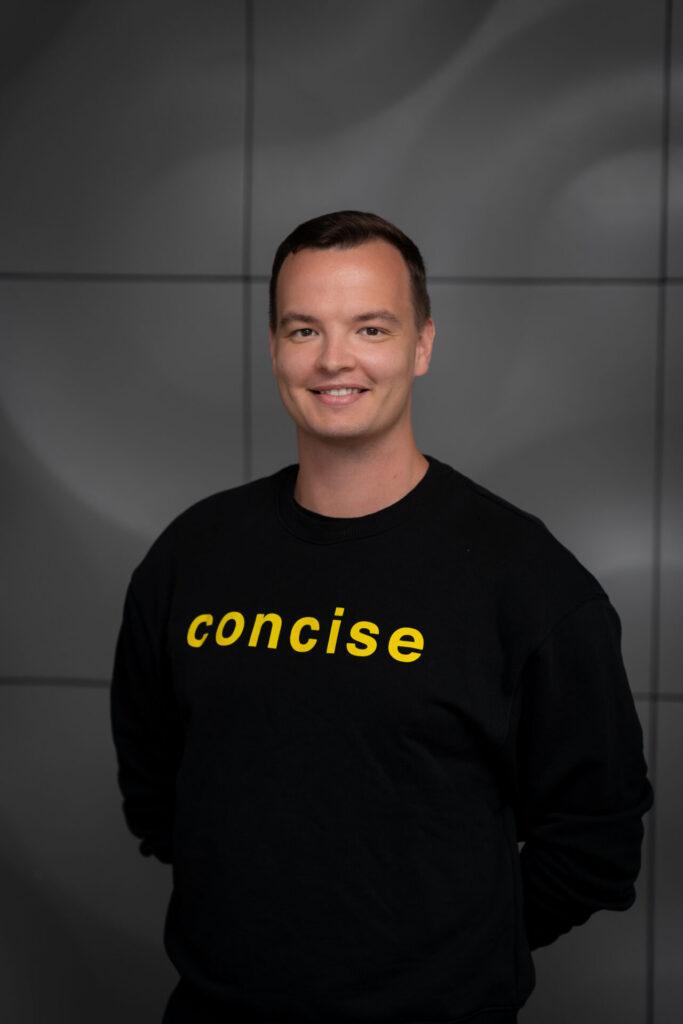When Priit Pihus joined Concise five and a half years ago, he was certain he would never work for a development service company again. “I was certain I would go to a product company,” he recalls. Today, however, he is very happy with us, and with his decision, and admits that it has been an exciting and valuable journey.
Priit’s journey to becoming a software developer was almost accidental: “I started configuring some web servers at the end of elementary school, then I worked as an IT specialist for a while, and then I got an offer for a software developer position. I don’t know why it came, but I thought, whatever – I’ll take it. When I think back on what we did there at the beginning and with what quality, it’s really funny. I’m not even embarrassed, but amused.
Thanks to this leap, this “weird little developer” quickly became someone who managed a team of 20–30 people.
Curiosity is a developer’s most important tool
Priit believes that the most important quality in a developer’s career is curiosity. “If you don’t have that spark, it’s very difficult to be a great developer.” He himself has always been open to new challenges and accepts projects purely based on gut feeling and enthusiasm. “Projects find me because I can’t say “no”. I want to know what’s inside, maybe something can be improved, or maybe it’s the next big thing. I’m such a hopeless optimist and always very curious.”
He recommends the same to today’s young developers: “Many people worry about which language or framework they should learn, but it’s actually not that important. It’s more important that you’re constantly learning something new and able to solve problems.”
When it comes to languages, Priit gives an example from an international coding challenge “advent calendar” last year, where every day the developers were given one or two real nuts to crack. One team member used a very interesting language and later asked the others to guess what language it was. “In the end, it turned out that the language was Excel. Actually, you can use any language to solve any task,” laughs Priit.
You can learn more with a hobby project than you can in a whole year at some jobs
Priit advises young developers to focus on practical skills and hands-on projects, as these will give them a competitive advantage. “If you want to get your foot in the door, don’t wait for the perfect job, just start somewhere. Hobby projects are a great place to learn, where you may learn a lot more than in a year at some full-time job.”
In addition to his daily work, Priit has spent over five years developing accounting software with friends, primarily intended for accounting firms. Priit states that the MVP (Minimum Viable Product) of such software is completely different compared to, for example, some food ordering app. It took them quite a few years to build the MVP alone, and the first year was so bad that several people left. It’s just such a complex field that building something usable requires a lot of work. “You can’t give a client a faulty report. It took quite a few years before we validated that this was the right thing to do,” Priit describes.
In addition, Priit is constantly tinkering with small projects that he himself needs: “What has received the most stars on GitHub is a stupid little script that helps you stream live from your camera to YouTube via a command line. Or, for example, recently I was looking for a plot of land that I could get to from the city center by bus in 20 minutes. It was quite tedious – you open the plot, the address, the bus stops, and start looking manually. So I quickly made a small web interface – I put in the cadastral unit number, copied it in and it immediately told me how quickly I could get there by bus.”
Will AI take away developers’ jobs?
“AI changes work a lot, but I don’t think it will replace developers anytime soon,” says Priit. Although he uses quite a lot of AI tools to write code himself, he still sees that the tool alone is not enough: “You also need to understand the structure of the code and best practices to some extent – or at least be able to ask for them. If you can’t express your wishes very precisely, you will get the wrong result or it adds something unnecessary.”
He sees that this will change maybe in a year or two: “Then AI will just write code, until eventually, it comes to the point where the question arises whether the code of a computer program should actually be human-readable. The code that a person writes is certainly not the most efficient way to give instructions to a computer, and if AI writes it anyway, it will probably find a million times more efficient way to do it.”
However, this does not mean that humans will become unnecessary, they will rather remain in a supporting role. “At the same time, it’s all developing so quickly that maybe in six months the world will be completely different. It’s very difficult to predict how it will all go, but as always, I’m trying to stay informed and curious.”
This doesn’t mean that the human become unnecessary but rather they remain in a supporting role. “At the same time, it is all evolving so quickly that maybe in six months the world will be completely different. It is very difficult to predict how it will all go, but as always, I try to stay informed and curious.”
Thanks Priit, for the inspiring talk. You can find Priit on LinkedIn, and the podcast, where he shared his ideas HERE.
